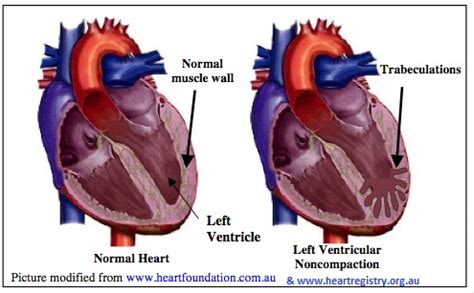lv non compaction treatment | non compaction cardiomyopathy life expectancy lv non compaction treatment Left ventricular non-compaction (LVNC) is a rare cardiomyopathy that usually affects the left ventricle in which the two-layered myocardium has an abnormally thick sponge-like, trabecular layer and a thinner, compacted myocardial layer. by: Lucas Wright. Posted: Feb 13, 2021 / 08:41 PM PST. Updated: Feb 14, 2021 / 08:11 AM PST. LAS VEGAS (KLAS) — Dozens of first responders converged on the Las Vegas Strip Saturday night for the report of a fire at The Cosmopolitan. The call originally came out just before 8 p.m.
0 · symptoms of lv noncompaction
1 · non compaction cardiomyopathy life expectancy
2 · non compaction cardiomyopathy guidelines
3 · lv non compaction on echo
4 · lv non compaction guidelines
5 · lv non compaction echo criteria
6 · lv non compaction criteria
7 · lv non compaction anticoagulation
1,695 sq. ft. bedroom, 750 sq. ft. terrace and 135 sq. ft. patio. Book This Room. Three levels of luxury in an extravagant, exclusive Las Vegas bungalow suite. As one of Las Vegas’ most sought-after poolside experiences, our Bungalow is spacious yet intimate with contemporary sophistication.
Left ventricular non-compaction (LVNC) is a rare cardiomyopathy that usually affects the left ventricle in which the two-layered myocardium has an abnormally thick sponge-like, trabecular layer and a thinner, compacted myocardial layer.
How is left ventricular non-compaction cardiomyopathy treated? Treatment for LVNC cardiomyopathy varies depending on what symptoms you have. If you have heart failure, your healthcare provider may prescribe medications such as: Left ventricular noncompaction is a rare cardiomyopathy, that should be considered as a possible diagnosis because of its potential complications – heart failure, ventricular arrhythmias, and embolic events.Treatment is guided by the results of diagnostic tests and the symptoms, alongside the diagnosis of a specific type of cardiomyopathy (HCM, DCM / NDLVC, ARVC). Treatment is therefore individualised based on the symptoms an individual is experiencing.
Treatment for Left Ventricular Non-Compaction. Not everyone whose left ventricle appears spongy has LVNC. Among those who have LVNC, many people have no complications and only need regular cardiology checkups. Others may need medications or additional treatment. Our team recognizes the nuances of LVNC, ensuring you receive personalized care.
This review will focus on clinical manifestations and diagnosis of LVNC as an isolated disorder distinct from other clinical settings in which non-compacted myocardium may be seen in association with other cardiac and noncardiac abnormalities. Management and prognosis of isolated LVNC is discussed separately. What is the treatment for noncompaction cardiomyopathy? There’s no cure for LVNC, but you can treat your symptoms. A doctor can also help you reduce your risk of complications.Left ventricular non-compaction (LVNC) is a rare congenital phenotype defined by the presence of prominent left ventricular trabeculae, deep intertrabecular recesses (continuous with the ventricular cavity), and a thin compacted layer.

LVNC is a condition of the heart where the walls of the left ventricle (the bottom chamber of the left side of the heart) are non-compacted. This causes channels to form in the heart muscle, called trabeculations. This gives the left ventricle a characteristic ‘spongy’ look (a bit like honeycomb). Left ventricular noncompaction (LVNC, also known as noncompaction cardiomyopathy [ 1 ]) is a complex myocardial disorder with a distinct phenotype characterized by prominent LV trabeculae and deep intertrabecular recesses [ 2,3 ].
Left ventricular non-compaction (LVNC) is a rare cardiomyopathy that usually affects the left ventricle in which the two-layered myocardium has an abnormally thick sponge-like, trabecular layer and a thinner, compacted myocardial layer.
How is left ventricular non-compaction cardiomyopathy treated? Treatment for LVNC cardiomyopathy varies depending on what symptoms you have. If you have heart failure, your healthcare provider may prescribe medications such as: Left ventricular noncompaction is a rare cardiomyopathy, that should be considered as a possible diagnosis because of its potential complications – heart failure, ventricular arrhythmias, and embolic events.Treatment is guided by the results of diagnostic tests and the symptoms, alongside the diagnosis of a specific type of cardiomyopathy (HCM, DCM / NDLVC, ARVC). Treatment is therefore individualised based on the symptoms an individual is experiencing.Treatment for Left Ventricular Non-Compaction. Not everyone whose left ventricle appears spongy has LVNC. Among those who have LVNC, many people have no complications and only need regular cardiology checkups. Others may need medications or additional treatment. Our team recognizes the nuances of LVNC, ensuring you receive personalized care.
This review will focus on clinical manifestations and diagnosis of LVNC as an isolated disorder distinct from other clinical settings in which non-compacted myocardium may be seen in association with other cardiac and noncardiac abnormalities. Management and prognosis of isolated LVNC is discussed separately.
symptoms of lv noncompaction
What is the treatment for noncompaction cardiomyopathy? There’s no cure for LVNC, but you can treat your symptoms. A doctor can also help you reduce your risk of complications.
Left ventricular non-compaction (LVNC) is a rare congenital phenotype defined by the presence of prominent left ventricular trabeculae, deep intertrabecular recesses (continuous with the ventricular cavity), and a thin compacted layer.LVNC is a condition of the heart where the walls of the left ventricle (the bottom chamber of the left side of the heart) are non-compacted. This causes channels to form in the heart muscle, called trabeculations. This gives the left ventricle a characteristic ‘spongy’ look (a bit like honeycomb).
non compaction cardiomyopathy life expectancy
Las Vegas City Hall. 495 S. Main St. Las Vegas, NV 89101. Phone: (702) 229-6011. TTY 7-1-1 An All-America City
lv non compaction treatment|non compaction cardiomyopathy life expectancy



























